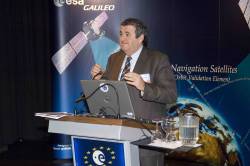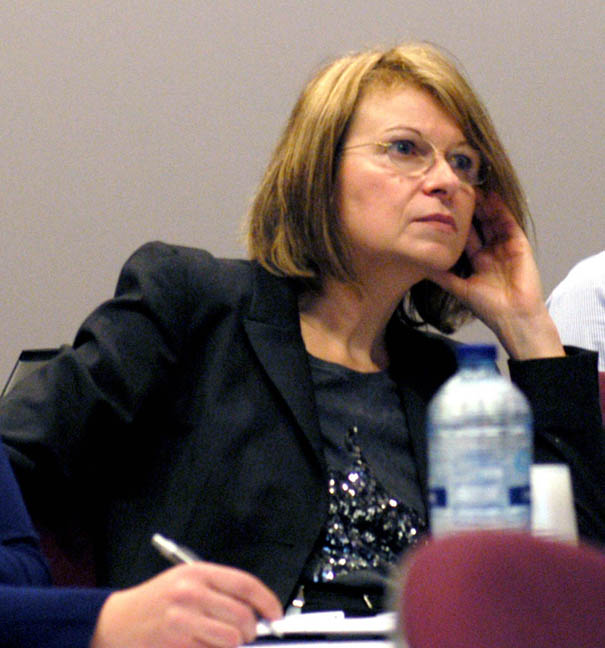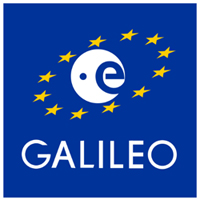The European Transport Council generally reaffirmed its commitment to the Galileo program in an October 2 meeting without resolving some underlying differences of how to finance the system following abandonment of the public-private partnership (PPP) approach earlier this year.
In its first look at the European Commission (EC) plan to complete the system by 2013 under a more traditional public procurement process, the council confirmed its intention “to take an integrated decision on the European GNSS before the end of the year.”
The European Transport Council generally reaffirmed its commitment to the Galileo program in an October 2 meeting without resolving some underlying differences of how to finance the system following abandonment of the public-private partnership (PPP) approach earlier this year.
In its first look at the European Commission (EC) plan to complete the system by 2013 under a more traditional public procurement process, the council confirmed its intention “to take an integrated decision on the European GNSS before the end of the year.”
The transport ministers acknowledged the work of the EC, the executive branch of the European Union (EU), which had drafted a new proposal in response to a June 8 request from the council. In a September 19 communication to the Transport Council and the European Parliament, the EC’s Directorate-General of Energy and Transport had laid out a plan that would rechannel funds from the EU current budget to eliminate a gap in financing the program.
The proposal, advanced by EC Vice-President and transport commissioner Jacques Barrot, had suggested plugging the gap mainly with unused EU funds earmarked for administration expenses and the agricultural sector.
Since the EC’s proposal became public, Germany, the United Kingdom, and The Netherlands have expressed doubts about the plan. Those three nations would prefer to see individual states contribute the extra funds to the European Space Agency (ESA), which would finance and manage the project.
Germany’s opposition is driven in large part by a fear that German companies would not receive a proportionate share of Galileo contracts under EC rules, which generally support competitive practices without a requirement for national allocations. ESA practices a policy of juste retour, which mandates that at least 90 percent of funds contributed by a member-state to a program will return in the form of work on related project for companies in that nation.
In its October 2 statement, the council appeared to address those objections by noting that it “looks forward to a balanced participation of all Member States during the different phases of the project while taking maximum benefit of open competition. . . .”
Additional meetings in November of the transport council and economic ministers, who must authorize any reprogramming of funds, will further deliberate the program. The EC is pushing for a decision by the European Council of prime ministers before the end of the year in order to meet the 2013 date.
The EC communication and an accompanying proposed regulation would also designate the European Space Agency (ESA) as the “design authority” for Galileo that would oversee deployment of the system under a contract with the EU.
Finally, the EC plan would impose several substantial changes in governance of the program, bringing under its jurisdiction the European GNSS Supervisory Authority (GSA)— a semi-autonomous European Community agency established to oversee the concession contract and perform other important functions in the Galileo program. GSA Executive Director Pedro Pedreira took part in ION’s GNSS 2007 plenary session on Tuesday night.
Under the PPP, a consortium of private companies would have contributed two-thirds of the cost of deploying the system in return for a 20-year concession contract to operate the system, which includes fee-based as well as free services. The EU would have paid the other third.
Without the industry contribution, the EC will need to eliminate a funding gap between the slightly more than €1 billion allocated for the public share under the PPP and the €3.4 billion projected cost to make the 30-satellite system fully operational by 2013. The plan unveiled last month would take €2.1 billion from other line items in the EU’s 2007-8 budget and €300 million from budgeted for GNSS research and development under the so-called 7th Framework program of European capital investment.
The EC’s proposal would create a somewhat novel role for ESA, which has traditionally overseen scientific research and governmental programs in space, such as remote sensing and interplanetary exploration. Galileo, in contrast, will be a commercial system widely used by the civil community as well as commercial enterprises.
ESA has co-funded and co-managed the initial stages of Europe’s GNSS program that focused more on technology demonstrations and proof of concept. It is overseeing the in-orbit validation (IOV) phase of the Galileo program, which includes a €1 billion contract let to European Satellite Navigation Industries (formerly Galileo Industries) to build four IOV satellites. ESA also is responsible for design and implementation of the European Geostationary Navigation Overlay Service (EGNOS), which will be integrated into Galileo in a few years.
In recent years, the EU and ESA have signed a series of high-level agreements, including the first comprehensive European Space Policy, to foster increased cooperation. And earlier this year, the GSA and ESA signed an agreement designed to improve the working relationship around EGNOS.
Aside from the new deployment model and financing, the third area of substantive change proposed by the EC has to do with governance — who makes the decisions and manages the program.
The European Council set the GSA up under a July 2004 regulation, making it a “community” agency with an administrative board selected by the EU states. The EC proposal would bring the GSA under its jurisdiction, strengthening some roles, particularly in market development. At the same time, it would create a larger (approximately 30 persons) and higher-level Galileo program office within the Directorate-General for Energy and Transport.
A new European GNSS Program Committee would be established to set overall GNSS policy that guided the EC’s efforts.
Under the PPP, the GSA had been charged with signing and monitoring the concession contract, which was anticipated would involve a high degree of technical oversight. Other responsibilities included market development, security matters (including policies and procedures for implementing the publicly regulated service or PRS), IP licensing, certification, and so forth.
© Copyright Gibbons Media & Research LLC, 2007





